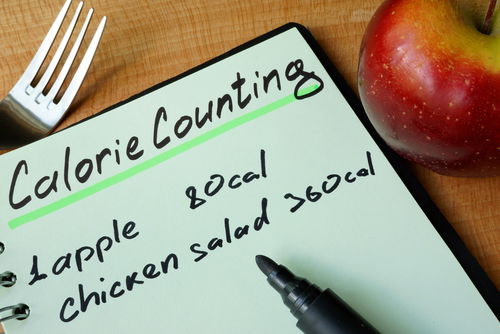Calorie Counting Used to Be the Go-to-Method

Calorie counting used to be the go-to method for weight loss, but as we've gained more knowledge about nutrition and health, a holistic approach to dieting has taken precedence. Swapping high-calorie options for lower-calorie alternatives and controlling portion sizes can greatly improve weight management. Load up on fruits and veggies, which are packed with essential nutrients and fiber, keeping you fuller for longer periods between meals or snacks.
Nutritious whole food choices contribute to satiety and weight loss by adequately fueling your body and satisfying your hunger. By consuming the right foods, you can meet your body's nutritional needs while reducing your risk of obesity. Adopting healthy eating patterns not only leads to a longer lifespan but also reduces the risk of obesity and other serious health complications. Increasing your intake of whole grains, whole fruits, and vegetables can help for living healthy.
Tracking Makes Planning Ahead Easier
Tracking what you eat and your daily workouts is an effective way to reach your goals. Once you have a good idea of where you are at, it becomes easier to plan ahead. Benefits of tracking food and exercise habits include:
1) Increased self-awareness – Tracking can help you understand your behaviors and relationship with food and exercise to encourage mindful eating and healthy lifestyle behaviors.
2) Monitor your habits – Because humans are habitual, it's easy to forget to engage in a new habit unless they have reminders. Tracking helps you monitor your habits to provide the push that's needed.
3) Improve accountability – Keeping accountable is an important part of meeting your long-term weight loss and health goals. Taking ownership of your actions means you are responsible for the consequences.
4) Reflect on changes needed – Tracking changes to dietary intake and physical activity creates an awareness of what you are eating and how much you are moving to make knowledgeable changes to your plan.
Exercise Helps to Burn More Calories
Exercise not only helps with weight loss but also with maintaining a healthy weight. It increases your metabolism and helps you burn more calories, even at rest. It also helps you maintain and build lean muscle mass, which leads to more calories burned. The number of calories and amount of exercise you need varies based on your natural activity level, age, and health conditions. A great starting point is cutting back on high-calorie, low-nutrition foods and start walking every day.
While calorie counting used to be popular, we now know that taking a holistic approach to diet and physical activities is more effective for the long term. The more muscle you have, the better your metabolism works, which is essential for living healthy. Understanding the quality of your diet and finding satisfaction in the foods you eat goes beyond just counting calories. It's important to have a varied diet and exercise routine to ensure that you burn more calories than you consume.
By submitting this form, you agree to receive marketing text messages from us at the number provided, including messages sent by autodialer. Consent is not a condition of any purchase. Message and data rates may apply. Message frequency varies. Reply HELP for help or STOP to cancel. View our Privacy Policy and Terms of Service.

